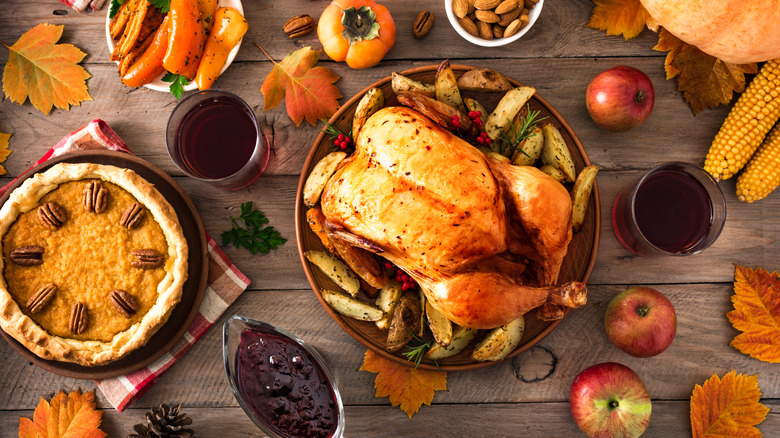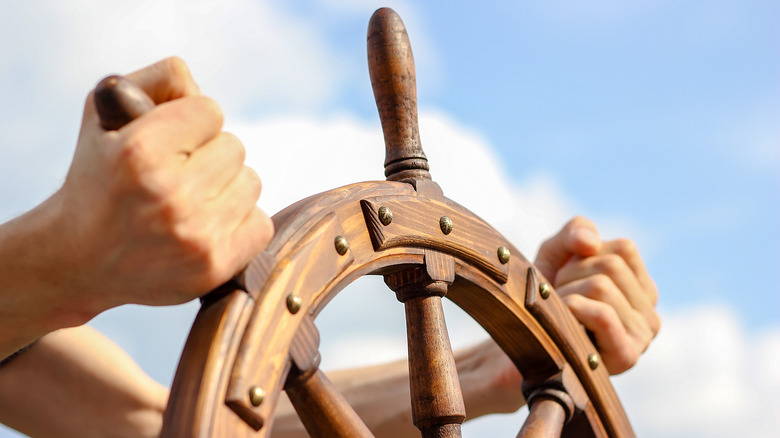The Real Reason Canada Celebrates Thanksgiving
The USA and its neighbor to the north are, in many ways, extremely similar countries. Both are populated by descendants of European settlers, in particular British settlers, and as such, both have similar diets, enjoy similar sports and leisure activities, and have many of the same customs. Both countries also celebrate some of the same major cultural and/or religious holidays, to an extent: Christmas, for example, is celebrated in both countries (although the Canadians lean more into Christmas' younger brother, Boxing Day, than Americans do, according to HuffPost).
Canada and the United States also have their own Thanksgiving holidays — in Canada, it takes place the second Monday in October, unlike the fourth Thursday in November for those in the U.S. (via The Old Farmer's Almanac). In both countries, the holiday came about because of a government decree (followed by decades if not centuries of the day being celebrated unofficially). Both ostensibly celebrate the same thing — a meal of, well, thanks, in honor of having overcome long odds and lived to tell about it. However, at least when it comes to the origin stories of the holiday, the similarities end there.
Canada's Thanksgiving has a much more lowkey origin story
The origin story of the Thanksgiving celebrated in the United States consists of a full plot and admittedly questionable narrative, and indeed, that's why schoolchildren recreate the event on stage for their parents every year for school plays. The settlers, following a deadly winter, shared a meal of friendship following the first harvest, sitting down with Native Americans to share the bounty. It's a touching story about overcoming long odds, about the providence of God, or about whatever you want to assign to the narrative — despite the fact that it's not entirely true (at least, not in the way that it's presented to us, according to NPR News), and it ignores some uncomfortable truths about the plight of Native Americans.
Canada's origin story of Thanksgiving is much more straightforward. Specifically, according to The Metro, the holiday celebrates an explorer named Martin Frobisher, who sailed across the Atlantic in 1578 and, on arriving safely in what would later become Canada, ate a meal of ships rations and gave thanks. That's it: no deadly winter, no natives, no meal of friendship. Just a sailor and his crew eating their food with gratitude.
It took 300 years of unofficial celebrating by Canadians before the government decreed it a holiday in 1879, and the rest, as they say, is history.

